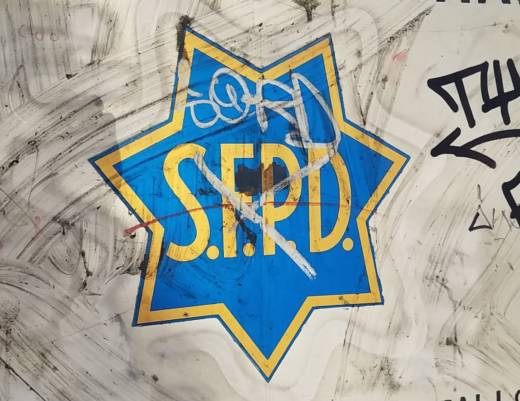But whether those messages should lead to firing for a police officer was never in dispute. Instead, Officer Rain Daugherty and eight others identified via messages on Furminger's phone argued in May 2015 that the Police Department had allowed a one-year statute of limitations for investigating police misconduct to lapse. They said SFPD officers investigating Furminger in partnership with the FBI and U.S. Attorney's Office were aware of the texts almost three years earlier.
But the Police Department, and later the city, has consistently argued that the officers participating in that criminal investigation were bound to secrecy by federal investigators, and the statue of limitations should toll -- or pause -- during that criminal investigation and prosecution.
An SFPD lieutenant said a federal prosecutor "actually threatened to charge me if I released any information," according to the appellate ruling, "so I didn't."
The statue of limitations argument was good enough for former San Francisco Superior Court Judge Ernest Goldsmith, though, who ruled in the officers' favor in late 2015, and retired soon after that.
That ruling kept officers who the city wanted to fire on the payroll for nearly three years -- collecting at least $2 million in pay, not including benefits, according to the lead deputy city attorney on the case.
"We were derailed by an opinion in the Superior Court that we had to go all the way to the Court of Appeal and argue to reverse," Deputy City Attorney Kenneth Walczak said Wednesday evening, after he'd just read the appellate opinion. "So hopefully we’re on the right track now and headed back to the Police Commission so that these officers can finally face discipline for these appalling text messages."
In their ruling Wednesday, appellate judges parsed the officers' arguments about the statute of limitations and another provision of state law that pauses that timer when police misconduct in question is the "subject" of a criminal investigation.
Goldsmith found SFPD officers working with federal investigators had the ability to initiate disciplinary charges for the bigoted text messages, and any argument that those messages were part of a criminal investigation was moot because they didn't end up being part of the prosecution.
Appellate judges found Goldsmith's conclusions "were erroneous as a matter of law or not supported by substantial evidence."
"[W]e conclude that respondents' text messaging misconduct was a 'subject' of the criminal investigation and prosecution," the opinion says.
"Notably, this was a criminal conspiracy case in which the investigators sought to ascertain the full scope of the conspiracy by identifying persons of interest, gathering information on them, and winnowing the list down as each individual’s involvement became clear. The text messages were a key investigative tool to aid in this effort because the investigators knew that Furminger, the central figure in the corruption scheme, conducted criminal activity via text messaging. Respondents’ text messages were obtained through search warrants of Furminger’s cellphone, and corruption investigators examined the text messages obtained by the search warrants for evidence of Furminger’s relationships, associates and accomplices."
The appellate court also cited common sense in its ruling, masked in legal language, of course.
"In interpreting statutory language, 'we may reasonably infer that the legislators intended an interpretation producing practical and workable results rather than one resulting in mischief or absurdity,'" Jenkins wrote, citing a 2008 state appellate case. "It would result in mischief to interpret [a section of the Public Safety Officers Procedural Bill of Rights Act] as requiring SFPD to initiate a disciplinary investigation that would have revealed the existence of respondents' text messages and risked compromising the corruption investigation."
City Attorney Dennis Herrera applauded the ruling.
"We’re very pleased the court found that police officials do not have to compromise a criminal investigation in order to pursue discipline against officers accused of abhorrent behavior," Herrera said in a written statement. "Forcing public officials to choose between the two would have made a mockery of justice."
The saga of just how difficult it may be to terminate a police officer for explicit racism isn't over yet, though. This legal battle was just to allow San Francisco's Police Commission to hold closed-door hearings, where the officers are entitled to make a case and be represented by their attorneys, who were provided three years ago by their union, the San Francisco Police Officers Association. Once the ruling is finalized, those hearings can go forward.
But even before that happens, the officers could appeal again to the California Supreme Court.
Alison Berry Wilkinson, who represents Rain Daugherty and is the lead attorney for the other eight officers, said in an emailed response Wednesday that the option for a Supreme Court appeal "will be evaluated in due course."
"This matter may continue to pend without a final resolution for some time," she wrote.
